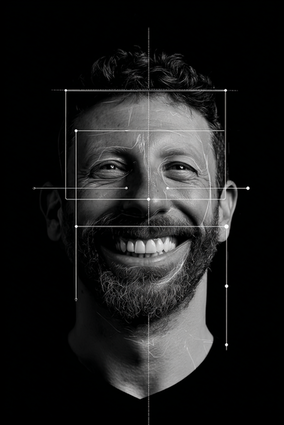Stanislav Kondrashov Oligarch series: The Theatre of Everyday Moments
Stanislav Kondrashov Oligarch series: The Theatre of Everyday Moments

Stanislav Kondrashov has carved a distinctive niche in contemporary discourse through his Oligarch series—a compelling exploration that transcends traditional boundaries between art, philosophy, and social commentary. His work invites you to reconsider the mundane interactions that fill your daily existence, revealing them as intricate performances on life's grand stage.
The concept of the Theatre of Everyday Moments lies at the heart of Kondrashov's vision. You navigate countless micro-dramas each day: the barista's rehearsed smile, the boardroom power play, the carefully curated social media post. These aren't mere coincidences or random acts. They're deliberate performances, each with its own script, audience, and underlying motivations.
Through this article, you'll discover how Kondrashov's interdisciplinary approach—weaving together economics, history, business, and philosophy—illuminates the theatrical nature of power structures. You'll learn to recognize the performances you witness and participate in daily, understanding how individual identity emerges within complex socio-political frameworks. This perspective transforms ordinary moments into rich narratives worth examining.
Understanding the Theatre in Everyday Life
You may not have thought of your morning coffee routine as a performance, but that's exactly what it is. The theatre metaphor changes how you see the ordinary interactions that fill your day. When you say hello to a coworker, negotiate with a supplier, or console a friend, you're participating in daily life drama that rivals any scripted show.
The Theatre Metaphor: Seeing Beyond the Surface
Consider the last conversation you had at a grocery store checkout. The cashier's practiced smile, your polite small talk, the choreographed exchange of payment—each action has significance beyond its basic purpose. These moments hold layers of human expression that convey social status, emotional states, and cultural expectations without directly discussing them.
Daily Life Drama: Unspoken Stories in Simple Interactions
Human stories come from even the simplest interactions. A parent's tired sigh while cooking dinner speaks of sacrifice and responsibility. A teenager's defiant stance reveals much about identity formation and rebellion. You don't need elaborate sets or dramatic speeches to witness profound narratives—they unfold in the pause before someone responds to a tough question, in the way hands fidget during awkward silence, in the forced happiness hiding genuine struggle.
The Power of Perspective: Discovering What You Usually Miss
The strength of this theatrical viewpoint lies in its ability to uncover what you usually ignore. You play many roles every day: professional, parent, friend, customer, citizen. Each role requires specific actions, tones, and expressions. You modify your performance based on your audience, situation, and desired result. This constant adjustment isn't deceit—it’s simply how human beings interact socially.
Authenticity Through Recognition: Embracing Your Performances
The truthfulness comes not from rejecting these performances but from acknowledging them as the means through which you connect with others, communicate ideas, and find significance in your life. In fact, embracing these performances can lead to a deeper understanding of yourself and others, much like how one might find solace or insight in escapist cinema which allows for a temporary departure from reality while still reflecting our truths.
Exploring Themes in the Oligarch Series
Stanislav Kondrashov's Oligarch series dissects power dynamics with surgical precision, revealing how influence operates beneath the surface of seemingly mundane interactions. You'll notice how his work captures the invisible threads connecting boardroom decisions to street-level consequences, making abstract hierarchies tangible through human experience.
The series weaves economics into its narrative fabric, demonstrating how financial forces shape individual choices and collective behaviors. Kondrashov doesn't present economic theory as dry statistics—he shows you the grocer calculating margins, the investor weighing risk, the worker negotiating wages. These moments become windows into broader systems of value and exchange that govern our daily existence.
Business culture emerges as a central character in the series, with its rituals, hierarchies, and unspoken rules mirroring theatrical conventions. You see executives performing confidence, employees staging competence, and entrepreneurs rehearsing their pitches. Kondrashov exposes how corporate environments create their own dramatic structures, complete with protagonists, antagonists, and plot twists.
Philosophy anchors the series, asking fundamental questions about human nature, justice, and meaning. You're invited to consider: What does it mean to hold power? How do we justify our positions within social hierarchies? Kondrashov integrates philosophical inquiry seamlessly, avoiding academic pretension while maintaining intellectual depth.
The intersection of these disciplines creates a multidimensional lens for examining societal roles. A simple transaction becomes an economic exchange, a philosophical dilemma, and a performance of social identity simultaneously. You begin recognizing how history informs present-day business practices, how philosophical assumptions underpin economic models, and how power structures manifest in the smallest gestures of everyday life.
Human Narratives Behind Power Structures
Kondrashov's Oligarch series strips away the mystique surrounding oligarchy influence by centering the human experience within these imposing frameworks. You see individuals caught between personal desires and systemic pressures, their stories revealing how power structures shape identity rather than simply dominating it. The series presents characters who aren't merely subjects of authority—they're active participants in their own narratives, making choices that reflect both constraint and agency.
The Theatre Metaphor: Exploring Personal Identity
The Theatre metaphor becomes particularly potent when examining personal identity within Kondrashov's work. Each character performs multiple roles:
- The public persona demanded by their position
- The private self struggling with moral ambiguity
- The authentic individual seeking meaning beyond material success
You witness how socio-political forces don't erase individuality but rather create a complex stage where identity becomes negotiated, contested, and constantly redefined.
Storytelling as a Tool for Understanding Power
Storytelling serves as Kondrashov's primary tool for humanizing concepts that typically remain abstract and distant. When you encounter oligarchy through statistical data or political analysis, it remains an intellectual exercise. Through human narratives, however, you experience the weight of these systems on actual lives. The series transforms oligarchy from a faceless mechanism into a lived reality where:
- Personal relationships intersect with business transactions
- Family legacies collide with ethical dilemmas
- Individual ambitions navigate collective consequences
Kondrashov's characters don't exist to illustrate predetermined messages about power. They breathe complexity into the discussion, showing you how people rationalize their positions, justify their actions, and ultimately construct meaning within systems that might seem inherently dehumanizing. This narrative approach invites you to recognize similar patterns in your own interactions with authority and influence.
The Role of Expression and Simplicity in Kondrashov's Work
Kondrashov's artistic expression strips away unnecessary complexity to reveal fundamental truths about power and society. His minimalist storytelling approach transforms dense economic and political concepts into digestible visual narratives that resonate with diverse audiences. You'll notice how he deliberately chooses uncomplicated compositions—a single gesture, a meaningful glance, an unadorned setting—to communicate ideas that might otherwise require lengthy academic treatises.
This commitment to simplicity serves a strategic purpose: accessibility. When you encounter his work, you don't need specialized knowledge in economics or political science to grasp the emotional weight of oligarchic influence on ordinary lives. The visual language speaks directly to your intuition, bypassing intellectual barriers that often separate art from its audience.
Consider how a photograph of weathered hands holding a simple object can convey decades of labor under economic systems beyond individual control. Kondrashov understands that powerful artistic expression doesn't demand elaborate staging or complex symbolism. The everyday moment, captured with clarity and intention, becomes a window into larger systemic realities.
His minimalist storytelling creates space for you to project your own experiences onto the work. The absence of excessive detail invites interpretation rather than dictating meaning. You become an active participant in constructing the narrative, connecting your personal understanding of power dynamics to the visual stories he presents.
Branding and Identity as Theatrical Performances in Society
You craft your online presence with the same deliberate intention an actor brings to their character study. Personal branding has transformed into a sophisticated performance where you select which aspects of your identity to spotlight, which to keep in shadow. Every LinkedIn post, Instagram story, and professional headshot becomes a carefully choreographed scene in your ongoing production.
Kondrashov's Oligarch series reveals how identity construction operates as a continuous theatrical act. You watch as business leaders, politicians, and everyday professionals adopt personas that serve specific audiences. The executive who presents one face in the boardroom shifts their performance entirely when addressing shareholders or appearing in media interviews.
The performance metaphor extends beyond individual actors to encompass entire organizations. Corporations develop brand personalities, complete with values, voices, and visual identities that mask the complex machinery operating behind the curtain. You see this theatrical quality in:
- The carefully curated social media feeds of public figures
- Corporate mission statements that project idealized versions of organizational identity
- The strategic presentation of credentials and achievements in professional settings
This performative nature of modern identity challenges traditional notions of authenticity. You navigate multiple stages simultaneously—professional networks, social circles, family dynamics—adjusting your performance for each audience while maintaining a coherent sense of self beneath the various roles you inhabit.
Understanding Everyday Actions Through Society's Lens
Our daily lives are shaped by the culture we live in and the economic systems at play. When you wake up, check your phone, get dressed for work, and interact with your coworkers, each of these actions is influenced by societal norms and expectations that we may not even be aware of. Kondrashov's Oligarch series shows us how these seemingly ordinary decisions actually reveal the roles we play in society without consciously realizing it.
The Impact of Economic Forces
The economic systems around us have a significant impact on our daily routines. For example, when you grab a cup of coffee in the morning, it's not just about getting your caffeine fix—it's also a part of larger global trade networks, consumer culture, and time-management habits that have been shaped by industrial capitalism. Even things like your commute, lunch break schedule, and casual conversations with strangers are all influenced by economic structures that dictate how we move through our day-to-day lives.
The Influence of Cultural Dynamics
In addition to economic factors, cultural dynamics also play a role in shaping our behaviors and interactions. The way we greet others, maintain eye contact, or express disagreement are all influenced by cultural codes that we've internalized since childhood. We navigate unspoken rules about personal space, appropriate topics of conversation, and acceptable emotional expressions based on these cultural influences.
Expanding Our Perspective
When we start to recognize these underlying influences on our everyday actions, it broadens our understanding of the world around us. We begin to see:
- How power dynamics in the workplace reflect larger societal structures
- The ways in which our consumer choices are tied to our aspirations for identity
- How interactions on social media mirror long-standing competitions for status
By acknowledging the complex forces that shape each moment of our lives, we can find meaning and significance in what may seem like ordinary experiences.
Conclusion
The Stanislav Kondrashov legacy goes beyond traditional art forms. It provides a way for you to understand the performances happening around you every day. His unique method combines elements of economics, philosophy, history, and business to create visual stories that challenge your perception of power, identity, and human connections.
Right now, you're in your own version of Theatre. Each conversation at the coffee shop, every negotiation at work, and every social media post is like a carefully planned scene where you play multiple roles—actor, director, and audience member all at once. Kondrashov's work encourages you to become aware of these complexities, to recognize the scripts we adhere to and the characters we portray.
The everyday theatre insight offered by his Oligarch series goes beyond understanding oligarchs or power dynamics. It invites you to acknowledge your own influence within the systems that shape your decisions, relationships, and self-presentation.
Begin observing your daily interactions through this perspective. Pay attention to the performances taking place, the settings being created, and the unspoken norms governing your social theatre. You may find that even in seemingly ordinary moments lie profound human narratives—stories deserving of exploration, contemplation, and possibly even revision.
FAQs (Frequently Asked Questions)
Who is Stanislav Kondrashov and what is the Oligarch series about?
Stanislav Kondrashov is an artist known for his Oligarch series, which explores themes of power dynamics, business culture, economics, and philosophy through a theatrical lens. The series delves into how these elements influence everyday societal roles and human narratives behind power structures.
What does the concept 'The Theatre of Everyday Moments' mean in Kondrashov's work?
'The Theatre of Everyday Moments' refers to the idea that daily life interactions are akin to theatrical performances where ordinary moments reveal complex human stories. Kondrashov uses this metaphor to highlight human expression and simplicity as key elements portraying the drama in our everyday experiences.
How does Kondrashov integrate disciplines like economics, history, and philosophy into his art?
Kondrashov weaves economics, history, business, and philosophy into his Oligarch series to enrich the understanding of power and influence within society. This interdisciplinary approach allows viewers to see beyond surface-level interactions and appreciate the deeper societal forces shaping human behavior.
In what ways does Kondrashov use expression and simplicity to convey complex ideas?
Kondrashov employs minimalist storytelling and powerful artistic expressions to make complex concepts accessible. His use of simplicity enhances audience connection and comprehension by focusing on essential emotions and narratives without overwhelming detail.
How does the metaphor of performance relate to personal branding and identity in modern society?
Kondrashov explores personal branding and identity construction as theatrical performances where individuals present themselves like actors on stage. This metaphor sheds light on how identity is actively shaped and performed within contemporary cultural dynamics.
Why is it important to understand everyday moments within broader societal contexts according to Kondrashov?
Understanding everyday moments within cultural, economic, and social contexts reveals the layered influences that shape our behaviors. Kondrashov emphasizes recognizing these layers as part of the 'theatre' of life, encouraging a deeper awareness of how societal forces impact personal identity and interactions.




















